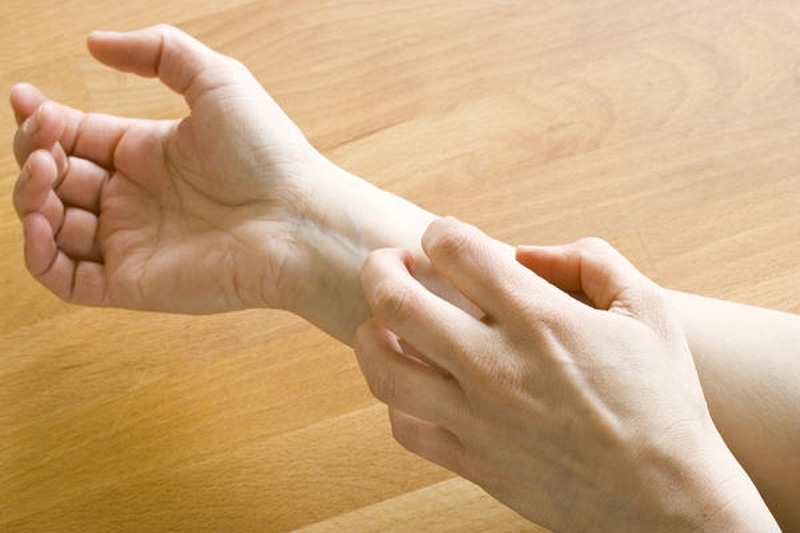Having itchy skin after taking a hot bath can not only be irritating, but it can be embarrassing as well. Itching is medically called pruritus, and it may leave scars and permanent damage on your skin. This itching sensation can occur to a certain area or all over your body. If you have been experiencing itchy sensations after showering, here are some useful tricks that can help you solve your problem.

My Body Itches After Shower, Why?
Taking hot showers
Direct contact with hot water can cause your skin to dry excessively, which is one of the major and most common causes why you can have itchy skin after a shower.
Frequent changing of soaps and shampoos
Switching out your toiletries frequently can be bad for your skin, especially if it’s very sensitive. The variety of chemicals found in these products may irritate your already delicate skin.
Chemical irritants
Sodium lauryl sulfate is a chemical derived from coconut that is included in toiletries as a foaming ingredient to work up a lather. It has been known to trigger itchiness and cause rashes.
Bathing in hard water
Using hard water to bathe may leave a thin layer of soap on your skin, which can cause your itching. Additionally, the calcium that is contained in hard water can also be another cause of dryness and itchiness.
Allergic reaction
Contact with certain allergens can cause your skin to experience itching sensations that may last anywhere from a few minutes to a few hours. Chemicals incorporated in your towels and bed sheets may also trigger these allergies.
Poor diet
An improper diet may be another reason for your itchy sensations. If you are unable to take in the nutritional elements that are essential to retaining moisture in your skin, this may be the reason why you always experience itching.
Frequent bath or shower
Your skin produces natural oils that protect it from harsh environments. These oils can be stripped away when you take long, hot showers, leaving your skin dry and itchy.
Contact dermatitis
Mildew that forms from dampness in your shower area can cause you to develop contact dermatitis, a temporary skin irritation. Traces of detergent and fabric softener can also cause this condition.
Aquagenic pruritus
Aquagenic pruritus, literally "water-caused itching", causes your body to activate defense mechanisms when it comes into contact with water or sweat. You will feel this itch deep within your skin, but it will not show visible redness or raised welts.
How to Prevent Beforehand
Use lukewarm or cold water when bathing, so your skin doesn’t lose natural oils. If you take showers frequently, don’t use too much soap, which can dry your skin.
Install a water-softening machine in your home to protect your skin from hard water.
Stay away from foamy bathroom products and do not switch from brand to brand very often to reduce the risk of itchiness.
Apply essential oils or lotions before and after showers and before going to bed. This will keep your skin soft and supple.
Protect your skin texture by staying away from areas that are too cold, hot or humid. Wear proper clothes and never rub your skin aggressively with your towel after bathing.
Soothe Your Itching Body Naturally
Bathe in baking soda or oatmeal
Add one cup of baking soda to a tub of warm water and soak in it, or mix three parts baking soda and one part water and apply to itchy areas. One cup of finely-ground oatmeal added to a warm bath also works.
Use lemon
Lemon contains anesthetic and anti-inflammatory properties, which makes it an ideal product to combat itchiness. Squeeze a fresh lemon directly on your itchy areas and allow the juice to dry.
Apply aloe vera
Squeeze the gel out of a piece of aloe and apply it onto your itch. This will moisturize your skin while forming a protective layer that will keep impurities out. You can also apply commercial moisturizer if your skin feels tight afterwards.
Use herbs
Cloves and basil, which contain a topical anesthetic called eugenol, and menthol and thymol found in mint and thyme have anesthetic and anti-inflammatory properties.
Eat a healthy diet and take lots of water
Dry skin can be caused by a deficit in Vitamins A, B, and E. This can be remedied by regularly eating dry fruits. Drinking lots of water also keeps your skin hydrated and removes toxins, which cause skin irritation and itchiness.
Keep good hygiene habits
Stay away from wearing fabrics made of wool, polyester and other synthetic materials, and stick to clothing made of 100% cotton. Avoid using scented detergent to wash your garments as these contain chemicals that may irritate your skin further.

View All Comments /Add Comment